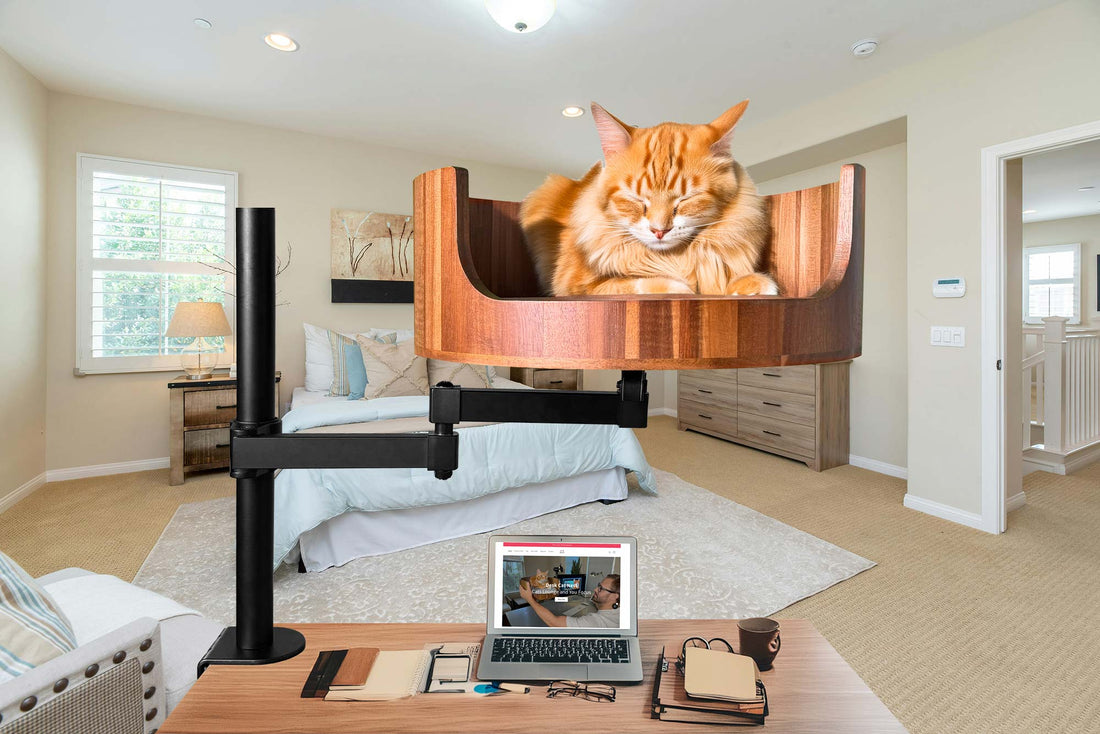
Why Does a Cat Meow After Eating? Understanding the Behavior
Share
Have you ever noticed your cat meowing incessantly after a meal? While it may seem like a mysterious behavior, there are actually several reasons why your furry friend might be vocalizing after eating. In this article, we will explore the various factors that could be causing your cat to meow after mealtime.
One possible reason for a cat meowing after eating is simply a way for them to communicate their satisfaction. Cats are known for being highly vocal creatures, and after a satisfying meal, they may meow as a way to express their contentment. Additionally, some cats may meow after eating as a way to signal that they are finished and would like their food dish to be removed. Another potential reason for this behavior could be related to their hunting instincts - in the wild, cats may vocalize after eating to alert other predators that they have claimed their territory and their food. Ultimately, understanding why your cat meows after eating can help you better interpret their behavior and strengthen your bond with your feline companion.
1. Cats meow after eating as a way to communicate with their human caregivers, seeking attention or expressing satisfaction.
2. Meowing after eating can also be a sign of discomfort or anxiety, indicating potential health issues or stress.
3. Providing a quiet and comfortable space for your cat to eat can help reduce excessive meowing behavior.
4. Regular veterinary check-ups and a balanced diet are essential for maintaining your cat's overall health and wellbeing.
5. Understanding your cat's behavior patterns and vocal cues can help strengthen the bond between you and your feline companion.
Reasons Cats Meow After Eating
There are several reasons why a cat may meow after eating. One common reason is that your cat is simply expressing satisfaction or contentment after a good meal. Cats may also meow after eating as a way to communicate with their owners, seeking attention, or signaling that they would like more food. In some cases, excessive meowing after eating could indicate an underlying health issue such as dental pain, digestive problems, or food allergies.
Attention-Seeking Behavior
Cats are known for their vocalizations as a way to communicate with their owners. Meowing after eating could be your cat's way of seeking attention or expressing their desire for more interaction. Some cats may meow more after eating if they associate food with receiving affection or playtime from their owners. It's important to observe your cat's body language and other behaviors to determine if the meowing is a sign of attention-seeking or if there may be an underlying issue causing the behavior.
Medical Reasons for Meowing After Eating
If your cat suddenly starts meowing more after eating, it could be a sign of a health problem. Dental issues, such as a broken tooth or gum disease, can cause discomfort or pain during eating, leading to increased vocalizations. Digestive problems, such as gastritis or inflammatory bowel disease, may also cause a cat to meow after eating. Food allergies or intolerances could result in meowing as well, especially if the food is causing digestive issues or discomfort. If you notice a significant change in your cat's meowing behavior after eating, it's best to consult your veterinarian for a thorough examination and proper diagnosis.
Desk Cat Nest FAQ
Why does my cat meow after eating?
There are a few reasons why your cat might meow after eating. It could be simply a way of expressing happiness or excitement about their meal. However, it could also indicate that they are still hungry, seeking attention, or even experiencing an underlying health issue. If the meowing persists or is accompanied by other concerning behaviors, it may be wise to consult with a veterinarian.
Will the Desk Cat Nest help address my cat's post-meal meowing?
The Desk Cat Nest is designed to provide your cat with a cozy and comfortable space to relax and feel secure. While it may not directly address the root cause of your cat's meowing after meals, it can help create a calming environment that may reduce stress and anxiety, which could in turn alleviate excessive meowing.
How can I encourage my cat to use the Desk Cat Nest?
It's important to introduce the Desk Cat Nest slowly and positively to your cat. Place it in a quiet and comfortable area, ideally near where your cat likes to eat or rest. You can encourage your cat to explore the nest by placing some treats or toys inside. Positive reinforcement, such as praise and treats, can also help your cat associate the nest with a positive experience.
Is the Desk Cat Nest easy to clean?
Yes, the Desk Cat Nest is designed with removable and machine-washable covers for easy cleaning. Simply follow the care instructions provided with the nest to ensure that it stays clean and fresh for your cat.
In conclusion, Desk Cat Bed offers a valuable solution to why a cat may meow after eating. This innovative product provides a comfortable and secure space for your feline friend to relax and digest their meal in peace. By reducing stress and providing a calming environment, Desk Cat Bed can help alleviate any post-meal meowing behaviors. With its cozy design and durable materials, this cat bed is a beneficial choice for both you and your pet. Choose Desk Cat Bed for a happy and contented cat after mealtime.



















































